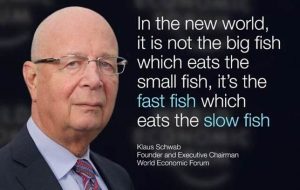
The big question for a person who wants to start a new enterprise is “What Business to start?”
Identifying the right Business Opportunity is the core of success for any startup. A systematic and scientific approach is necessary for Opportunity Identification and we have opportunity to learn the process and structure, since it is not advisable to blindly copy any other’s business idea, which is generally done by people at large, resulting in start-up failures, because ideas which succeed in some places may not succeed in the same way in other places. Lots of due diligence and checks have to be done to ensure minimizing chances of failure.
This is one of the important attributes of an entrepreneur. An entrepreneur takes ‘calculated risk’ and not ‘risk’, it means it is a sound decision taken on the basis of extensive research and due diligence.
For the success of any enterprise, three things are very important on top of other criteria, viz., MONEY, PERSON and BUSINESS IDEA. If these three things are to rank in terms of their importance:

i- The prime important component is the “Person” behind the business. If the person behind the business idea is not entrepreneurial, the business is bound to fail no matter if the business idea is 100% viable and sufficient money is invested in the business. Beyond workable ideas and able to monetizing, a “motivation” factor on the person is very much crucial. Mclelland studies show energy or motivation contributes over 43% of business success, and there are several psychometric tests to justify the above traits either GETT (General Enterprise Tendency test, Motivation Trigger Color test or SRQ (Self-Rating Questionnaire). And yes, some of these tests being conducted beforehand by start-up incubators in some countries.
ii- The second most important component is the ‘Business Idea’ because the success of the business depends on the viability of the idea.
iii- The last important component is “Money”.
What do you think the most important aspect of Enterprises?
In the next posting, We will share on ‘Business Ideation Process’ & Business Plan Preparation
![Faisal Malik & Co [FMC Group]](https://faisalmalikco.com/wp-content/uploads/2018/03/logo.png)













